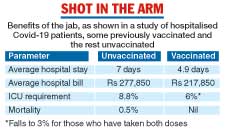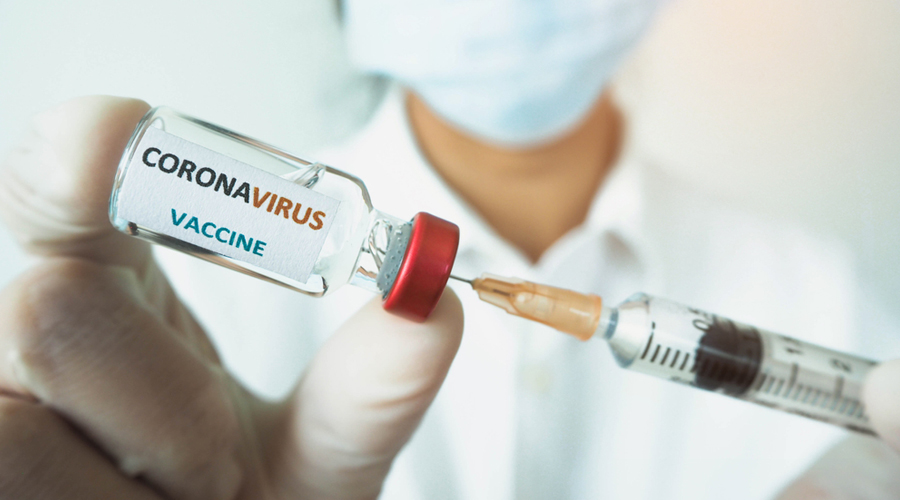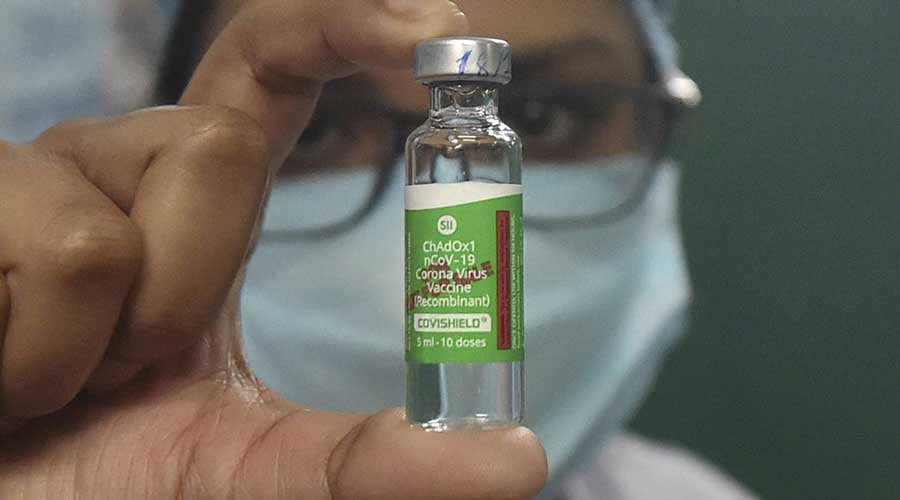People vaccinated against Covid-19 and yet hospitalised with the infection are likely to require shorter hospital stays, face significantly reduced need for intensive care unit support and run up lower hospital bills, a nationwide study of health insurance claims has suggested.
The study has found that vaccinated patients hospitalised for Covid-19 were discharged two days earlier than others, and that the fully vaccinated among them had a 66 per cent lower risk of needing ICU support. Also, the average hospital bill of the vaccinated patients was Rs 60,000 lower than that of unvaccinated patients.
“Our findings bolster the evidence for how vaccination benefits individuals,” said Prakash Subbarayan, MD of Star Health Insurance, a Chennai-based company that has handled over 300,000 Covid-related claims over the past year.
The Star Health study is the first in India to compare Covid-19 infection outcomes, including hospital bills, in unvaccinated and vaccinated people. It has drawn on data from hundreds of hospitals, in contrast with earlier studies from single or far fewer hospitals.

Prakash and his colleague Madhumathi Ramakrishnan — both doctors themselves — analysed the health outcomes and the insurance claims of 3,301 unvaccinated and 519 vaccinated Covid-19 patients admitted to 1,104 hospitals across the country during April and May this year.
They found that the vaccinated patients had a lower average hospital stay of 4.9 days, compared with seven days for unvaccinated patients. And 31 (6 per cent) of the 519 patients who had received at least one vaccine dose needed ICU support compared with 291 (8.8 per cent) of the 3,301 unvaccinated patients.
Only one (3 per cent) among the 33 patients who had taken two doses before they developed the infection required ICU support, implying a 66 per cent reduced risk of the need for ICU care as a result of vaccination.
Sixteen (0.5 per cent) of the 3,301 unvaccinated patients died compared with none among the 519 vaccinated.
“We see the protective effect against the need for ICU support even after one dose, but the effect is much stronger two weeks after completion of both doses,” Madhumathi said.
The average hospital bill for the vaccinated patients was Rs 217,850 compared with an average bill of Rs 277,850 for the unvaccinated patients.
While the difference of Rs 60,000 per patient is significant for health insurance companies, the difference in expenses was not in proportion to the significant reductions observed in the need for ICU care or durations of hospital stay.
“Our study covered a diverse set of hospitals, large and small. India does not have standardised hospital costs and in such circumstances, it is essential to address this,” Prakash said.
The relatively meagre decline in hospital bills despite shorter stays or a reduced need for ICU care may be the result either of the absence of standardised costs or of hospitals trying to charge as much as they can from insured patients, an issue India’s health insurance industry had flagged last year.
The General Insurance Council, a body of public and private insurance companies, had in an application to the Supreme Court last year said that private hospitals were charging “exorbitant amounts of money from insured patients”.
The GIC had cited instances where hospitals had initially sought payments two to five times the amounts they accepted after insurance companies raised objections.
“We have observed that privately insured patients are generally not getting benefits of the government’s Covid-19 rates,” said Malini Aisola, a coordinator with the All India Drug Action Network, a group of physicians and health activists tracking the country’s healthcare landscape.











